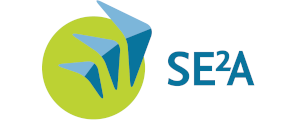
Who are you and what is your research topic?
I am a research engineer at the Institute of Machine Tools and Production Technology (IWF - TUBS) with background in electrical engineering and renewable energy technologies. I currently investigate the sustainability of the future most promising technologies to reduce the environmental impact of aviation.
Which research question are you working on?
I am working on the SUMAFly project, which focuses on the modelling and assessment of environmental and socio-economic impacts associated with the future aircraft technologies along their life cycle. I am interested in investigating in how far the future technologies will actually contribute to a more sustainable and energy efficient aviation. To derive answers to this question, I am working on the development and application of methods of Life Cycle Engineering for conducting a life cycle-oriented environmental assessment of future aircraft systems.
What makes this topic special/exciting for you?
I am very enthusiastic about sustainable solutions for the energy transition. In a scenario of growing environmental concerns in the aviation sector, it is really exciting for me to be actively working towards a more sustainable aviation future. I find very interesting to investigate electric propulsion systems from an environmental perspective and be able to identify the influencing factors and their implications on the environmental impact.
Why is your topic relevant for future aviation?
Despite the fact that the alternatives to fossil-based combustion engines have the potential to reduce the in-flight emissions, they might also imply changes in material supply chains of aircrafts and lead to new challenges and impacts along the life cycle. In this way, not only to avoid shifting the environmental problems, but to be able to handle the high data uncertainty and variability of model parameters, integrated computational life cycle engineering approaches for the aviation industry are needed. My topic focuses on this approach to enable a robust sustainability assessment of a large number of new technologies and scenarios within regional and temporal contexts, supporting a more sustainable aircraft design.
What is special about participating in the interdisciplinary research network SE²A?
Participating in the SE²A interdisciplinary research network give us the chance to be involved in the relevant disciplines within the aviation field and, by exchanging knowledge across disciplines, we can complement each other's research activities, enabling more creativity and innovation in researching the aviation of the future.

Technische Universität Braunschweig
Cluster of Excellence SE²A –
Sustainable and Energy-Efficient Aviation
Hermann-Blenk-Str. 42
38108 Braunschweig
se2a(at)tu-braunschweig.de
+49 531 391 66661
